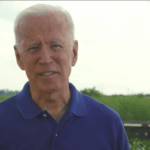


In a major political development, President Joe Biden announced on Sunday that he would grant a pardon to his son, Hunter Biden, for charges related to gun possession and tax evasion.
Breitbart reported that the decision is stirring intense debate, as it may affect Hunter Biden's ability to avoid testifying under oath due to waived Fifth Amendment rights.
The President's announcement came shortly before Hunter Biden was set to face sentencing hearings on December 12 and December 16 for the aforementioned charges.
The pardon has led to discussions about whether Hunter Biden will still be able to invoke his constitutional right against self-incrimination, a protection typically afforded under the Fifth Amendment. This legal shield might be compromised, inviting new legal and political challenges for the President’s son.
Significantly, Rep. Andy Biggs (R-AZ) has expressed his intention to bring Hunter Biden before the House Judiciary Committee for testimony, a move facilitated by the presidential pardon.
In a public statement on X, Biggs highlighted his plan to subpoena Hunter for questioning. He emphasized that despite the pardon, getting truthful answers from Hunter Biden remains a priority for the committee.
The pardon itself has drawn a sharp line in the political landscape. While some see it as an act of familial compassion, others argue it reflects an improper use of presidential power.
This criticism extends to worries about the legal and ethical implications that may follow. The Washington Examiner noted the pardon might indeed strip Hunter Biden of his Fifth Amendment protections, forcing him to testify in congressional settings or potentially face new charges for non-compliance.
The news quickly gained traction among political commentators and lawmakers. In his defense, President Biden justified his decision amidst what he described as a justice process marred by political influence.
"I believe in the justice system," Biden said, underlining how political factors led to an unjust situation. He expressed hope that the American public would empathize with both his paternal instincts and presidential duties.
Conversely, opposition voices have been vocally critical. Rep. Greg Stanton (D-AZ), for instance, disagreed with President Biden's move, asserting it was a misstep. On X, Stanton wrote that the prosecution of Hunter Biden was fair and fact-based, and stressed that Hunter was convicted for his actions in court.
The divide is clear, as supporters argue the President was acting in his son's best interest. Critics, on the other hand, argue the pardon may embolden claims of special treatment within the judicial process.
For Hunter Biden, this development suggests that legal troubles might persist, albeit in a different form. Non-compliance with subpoenas or congressional inquiries could eventually lead to further legal consequences.
Rep. Biggs's proposed actions underscore the legal complexities introduced by the pardon. By potentially stripping Hunter of the ability to avoid self-incrimination through the Fifth Amendment, the pardon might inadvertently heighten his exposure to legal risks in the months ahead.
President Biden's rationale centers around a narrative of fairness and love for family, a sentiment that receives mixed perceptions from political peers.
As discussions unfold, the controversy surrounding his pardon decision adds yet another layer to the ongoing discourse about justice and political accountability in Washington.
Looking forward, the potential subpoena could set the stage for a contentious battle in the House Judiciary Committee. Rep. Biggs’s readiness to bring Hunter Biden into the spotlight hints at further political maneuvering that might influence public opinion, especially as election periods approach.



